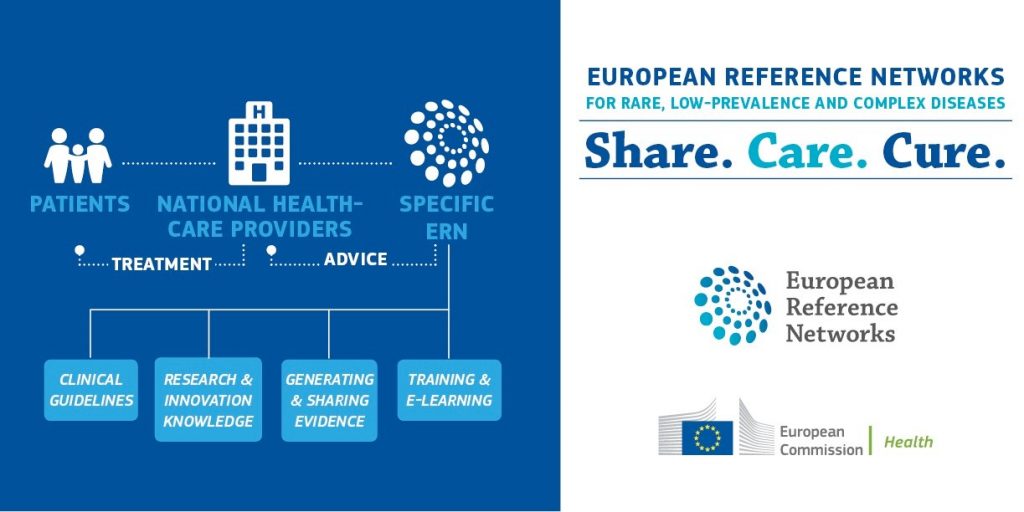………..
Rare diseases can be life-threatening or cause chronic disabilities. They are characterized by low prevalence and high complexity. Health systems in the EU aim to provide high quality and affordable healthcare for patients with rare diseases. Find out more about EU initiatives for rare diseases.
Rare diseases are those that affect no more than 5 in 10.000 people. Taken together, between 6.000 and 8.000 rare diseases affect the daily lives of around 30 million people in the EU – many of whom are children. Rare and complex diseases can cause chronic health problems and many of them are life-threatening. For example, there are almost 200 different types of rare cancers alone and each year more than half a million people in Europe are diagnosed with one.
ORPHANET is a multilingual portal and the most important database in the EU on rare diseases and orphan drugs. It contains information on more than 5.000 diseases and aims to improve the quality of medical care and provide specialized services for the rare disease community.
The EU Directive on Patients’ Rights in Cross-border Healthcare (2011/24/EU) provides for the setting up of European Reference Networks (ERNs) for Rare Diseases. The process and criteria for establishing an ERN and for selecting its members are set in EU legislation.
24 thematic ERNs, gathering over 900 highly specialised healthcare units from 26 countries, were launched in May 2017 and begun working together on a wide range of issues, from bone disorders to haematological diseases, from paediatric cancer to immunodeficiency. Joining up of EU’s best expertise on this scale is expected to benefit in the future thousands of patients with diseases requiring a particular concentration of highly specialized healthcare in medical domains where the expertise is rare.

European Reference Networks (ERNs) are virtual networks involving healthcare providers across Europe. To review a patient’s diagnosis and treatment, ERN coordinators will convene ‘virtual’ advisory panels of medical specialists across different disciplines, using a dedicated IT platform and telemedicine tools.
In practice, ERNs will develop new innovative care models, eHealth tools, medical solutions and devices. They will boost research through large clinical studies and contribute to the development of new pharmaceuticals, and they will lead to economies of scale and ensure a more efficient use of costly resources, which will have a positive impact on the sustainability of national healthcare systems, and for tens of thousands of patients in the EU suffering from rare and/or complex diseases and conditions.
European Reference Networks (ERNs) for Rare Diseases
More information on European Reference Networks (ERN) is available here.

